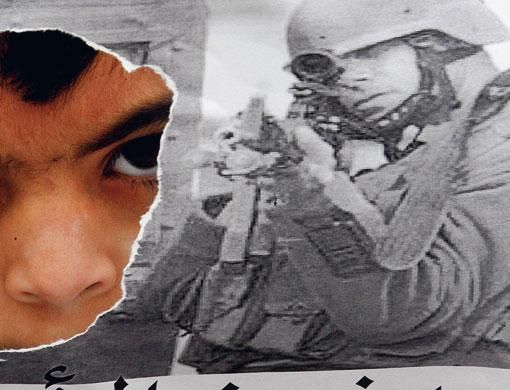Voices get loud and excited over the radio Reuters news crews use in Gaza to call in the latest information. Some people complain there are no "Western reporters" inside. But we all work here for Reuters.
After two full weeks of bombardment we are all worried about our families but we work and work the story. We hope it will stop. "They bombed a car in Beit Lahiya," says one colleague working in northern Gaza. "Three dead arrived in Shifa hospital," says another in Gaza's largest hospital. "Several people injured when Israeli planes bombed the tunnels," says a third from southern Gaza Strip near the border with Egypt.
I field these calls in our office where we have duct tape crosses on every window to limit flying glass if a strike is too close. Still, the largest window in the hall was blown out. We have a fixed camera on our high-rise building but our cameramen avoid pointing their cameras from the windows, in case they are mistaken for weapons.
The camera can show the blue Mediterranean sea a few blocks to the west, or point the other way to where Israeli ground forces are closing in, perhaps little more than a kilometre away. At night it used to show bright lights and traffic.
"Please take care. Do not enter a place right after it is bombed. Wait a bit, it may be hit again," I say to our crews 30 times a day. We urge each other to avoid main roads outside the city, and to look carefully where we drive. "Try not to pass a police station even if it was already bombed. Do not go by a money exchange shop, or a house of a Hamas leader. Do not pass by a place the Israeli army has threatened to bomb. Avoid passing close to a mosque."
We all get to the office around 9am - typically about 10 of us, with another dozen working in other parts of the Strip. We call information into Occupied Jerusalem where colleagues have been updating our main report around the clock.
I live in the southwest side of Gaza City. We've had almost no electricity for 10 days. For safety, my wife, daughter and son have squeezed all day into our little hallway, listening to the news on a transistor radio. We were clearly in a battle zone, and so my family have now moved to be with relatives in an area nearer the centre, more crowded and so, we hope, safer. Though nowhere feels safe.













